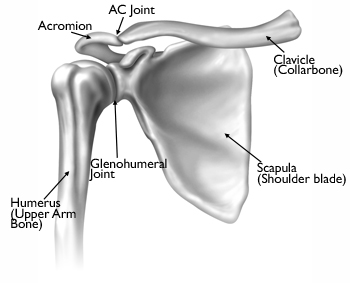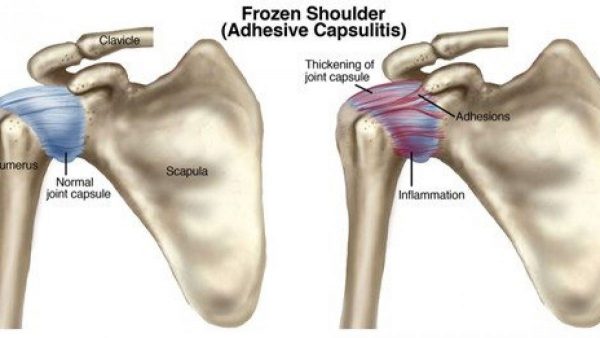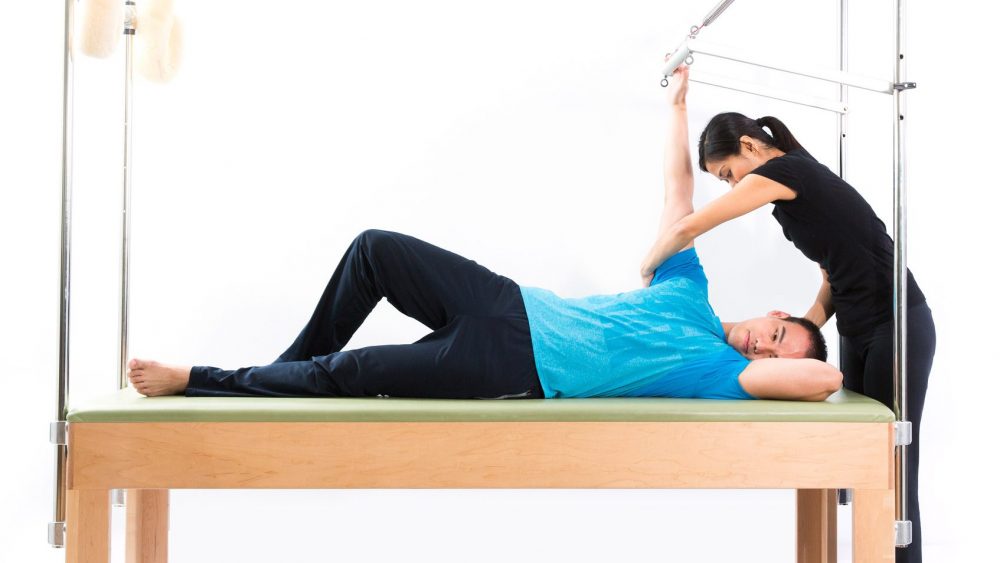Anatomy of the Shoulder Joint
The shoulder is a ball-and-socket joint made up of three bones: The shoulder blade, the collarbone, and the upper arm bone, or humerus.
Connective tissue, known as the shoulder capsule, surrounds this joint. Synovial fluid enables the joint to move without friction.

What is Frozen Shoulder?
Frozen Shoulder (or Adhesive Capsulitis) thought to happen when scar tissue forms in the shoulder. This causes the shoulder joint’s capsule to thicken and tighten, leaving less room for movement.
It can be a very painful, debilitating condition and is more common in patients between the ages of 40 and 60.

The Stages of Frozen Shoulder
Stage 1. Freezing Stage
Pain gradually increase. Shoulder slowly become stiffer due to pain and the lack of movement in the shoulder.
Stage 2. Frozen Stage
Pain does not worsen and it may decrease at this stage but the stiffness persists or worsen. People will struggle to move the shoulder in this phase.
Stage 3. Thawing Stage
Slowly regain mobility in the joint, pain may fade but occasionally recur.
For some people, the pain worsens at night, difficult to sleep on the side of frozen shoulder.
When Should You Seek Treatment?
You should get physiotherapy for shoulder pain treatment at the end stage of Stage 1 (Freezing Stage) to reduce pain due to inflammation and improve shoulder blade and upper back movement. Good shoulder blade and upper back mobility may shorten your overall recovery time and help improve your pain free movement.
How Can Physiotherapy and Pilates Help?
It is the frozen stage where physiotherapy treatment and Pilates exercises become crucial to regain your shoulder range of movement and improve your strength. Our experienced physiotherapist and Pilates instructor will utilize Pilates equipments to target the immobile part precisely. When the range is better, we will incorporate Pilates strengthening exercise which using a combination of dynamic and static strength training. This is important as to make sure you are not at risk of regressing back into freezing stage.

To start a treatment plan for frozen should, get in touch with us to speak to one of our experienced Physiotherapists today and let us develop a health care plan best suited to your needs.


